#oath
Text
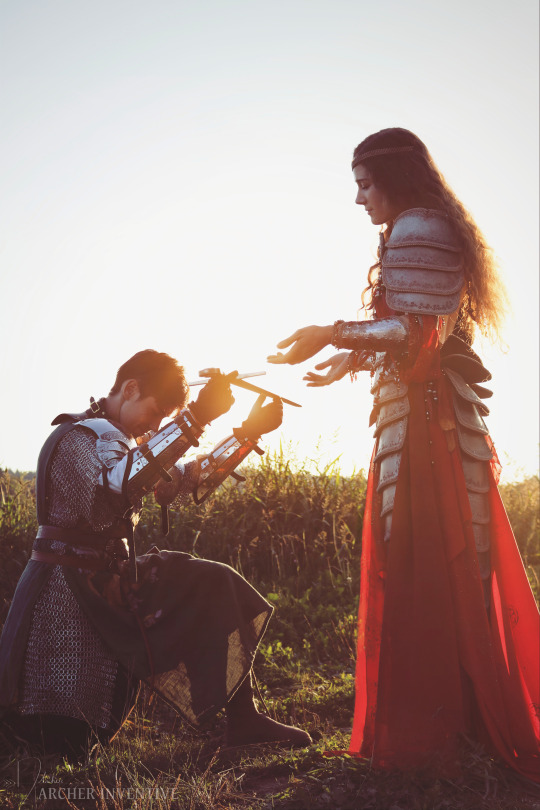
"And the mystery knight should defeat all challengers and name the wolf maid the queen of love and beauty" - George RR Martin
Some sword related content for your Saturday. :)
Thank you to Liv. FH for capturing this moment, and to @unicorn-shieldmaiden for always being such a lovely friend and model. ❤️
#lady knight#queen#the vow#oath#meet at sunset#armored dress#armor#knight#medieval#fantasy#photogaphy#archer inventive
1K notes
·
View notes
Text
Not the first time I’ve polled this, but it’s been a while and I’m curious to see where the tides are rising after the popularity of BG3.
390 notes
·
View notes
Text

irkawaza
413 notes
·
View notes
Text
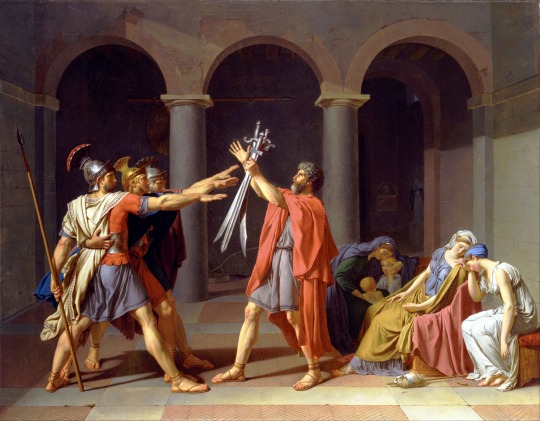
The Oath of the Horatii
Copy of Jacques-Louis David's original by his student Anne-Louis Girodet de Roussy-Trioson
#ancient rome#jacques louis david#anne louis girodet de roussy trioson#anne louis girodet trioson#art#horatii#oath#rome#alba longa#roman#romans#neoclassical#neoclassicism#antiquity#history#mythology#salute#saluting#curiatii#duel#europe#european
84 notes
·
View notes
Text
I don't think I've ever seen anyone talk about this Utada Hikaru quote in regards to both Hikari and Passion before:
In an interview, Utada said, "It's like... as if 'Hikari' was the dawn, and 'Passion' has a concluding or 'dusk' feeling to it. The lyrics of 'Passion' show how phases of the past, present and future of the character in my song relate to each other."
This came from the KH Fandom Wiki, which I'll link below in the comments. I've seen the Nomura quote mentioned all the time about how Passion is about Sora and Riku's reunion, but I think a part of Nomura's quote that often gets overlooked is when he states:
I wrote stuff like "An image of a reunion, a happy moment in a way" and "Like a Hikari 2" in there.
Italicized part by me for emphasis and the main thing I want to talk about here. The quote from Nomura can be found over at Kingdom Hearts Insider (which I will also link below in the comments).
We have Utada mentioning how Hikari is like the dawn and Passion is like the concluding dusk, thus connecting the two songs to each other in a sequel like way, just like Nomura mentions in his interview when he states that Passion is "Like a Hikari 2." So, in my mind, since Nomura states that "Passion is about Sora and Riku's reunion" and Utada uses the phrasing of dawn, as well as how the song highlights how past, present, and future relate to each other for the character in the song...I think it's pretty safe to say that Hikari is about Sora and Riku as well.
That seems to be what both Nomura and Utada are implying with their answers here. Now, I know that some people really like to say that Simple & Clean and Sanctuary are their own songs, which they are. The lyrics are different. But the thematic elements are still the same and there are still similar through lines (like the backward lyrics being the same in both Passion and Sanctuary for instance).
The lyrics of Hikari really fit Riku's views on Sora and the bond they have/had - the desire for it to remain unchanged. The person they are singing about being their light (Sora being Riku's light, something we know Riku views Sora as via things like the DDD Novel Side Riku). Simple & Clean's lyrics definitely fit Sora as a character and his voice more.
With Passion and Sanctuary it almost seems like this is reversed though. The English version, Sanctuary, has more lyrics that fit Riku and his perspective on Sora and their reunion. Meanwhile, Passion's lyrics fit Sora a lot more. The line: "I heard my old crush is having a baby in the wintertime" is quite interesting in various ways. The whole last set of lyrics in Passion aren't really directly related to KH, but more to general ideas of things that denote changes and passages of time (people having children, getting New Years cards, etc.).
It's also so interesting that Hikari is mentioned as being the Dawn (the time of day associated with Riku) and Passion the Dusk (the time of day that is often associated with Kairi). In KH2 is when we start to see a shift in Sora's feelings and interactions with Kairi (distance, drifting apart, change) and a reconnection happen with Sora and Riku (reunion, airing out feelings, better communication, reinforcing their friendship and bonds to each other, etc.).
We get games that focus more on Sora and Riku's bonds (Re-coded, BBB when they are little kids, and DDD) and Kairi is sadly neglected by the narrative and both Sora and Riku in a way. Something that we see her taking note of in KH3, more obviously through the novelization.
I don't know. To me these quotes just make me think it is very obvious that both Hikari/Simple & Clean and Passion/Sanctuary are all songs about Sora and Riku and their bond with each other. Of course, since KH3 is meant to be a conclusion to the Dark Seeker Saga, of which KH1 and KH2 are both a part of, it would make sense that Oath and Don't Think Twice are about them too.
Sadly, we don't really have anything remotely official to really solidify that interpretation though, not that official recognition of things like this are necessary - they aren't - but they do add more validity to interpretations and theories. Maybe some day we'll get a comment about Oath / Don't Think Twice from either Nomura or Utada. But until then...I'm still going to think that those songs are about Sora and Riku.
Anyway, these are just rambling thoughts on a topic I've talked about before (the KH themes like Oath / Don't Think Twice and their connection to Sora and Riku). But I was thinking about this all again with the new Hikari re-recording by Utada that came out recently. It's a beautiful re-recording that I definitely suggest every KH fan check out. I'll link that in the comments as well, lol. Also, feel free to add this via reblogs or in the comments! I might not respond right away, but I'll read everything that gets commented, added, etc.
#Soriku#KH#Kingdom Hearts#Sora x Riku#Nomura#Utada Hikaru#Hikari#Simple and Clean#Passion#Sanctuary#Don't Think Twice#Oath#long post#thought post
66 notes
·
View notes
Text
With the help of the European Union, the United States, and the United Kingdom, the Israeli terrorist organization, the Occupiers, are committing genocide against the Palestinian people of Gaza and the surrounding area. They are also killing children, terrorizing people, animals, and even cutting all form of life, bombarding hospitals, civilian buildings, and every corner of the city's streets. They are even calling the local population of that land terrorists by deploying their propaganda machine, but even this will never be able to block the light of truth—that is,
the Oath of Allah 🖤 !.
#palestine#Gaza#War#Genocide#Killing#Occupiers#Palestinian#downfalldestiny#downfall#life#magic destinations#magical world#magic moments#Hospitals#Terror#Oath#Allah#Us#Eu#Uk
139 notes
·
View notes
Text
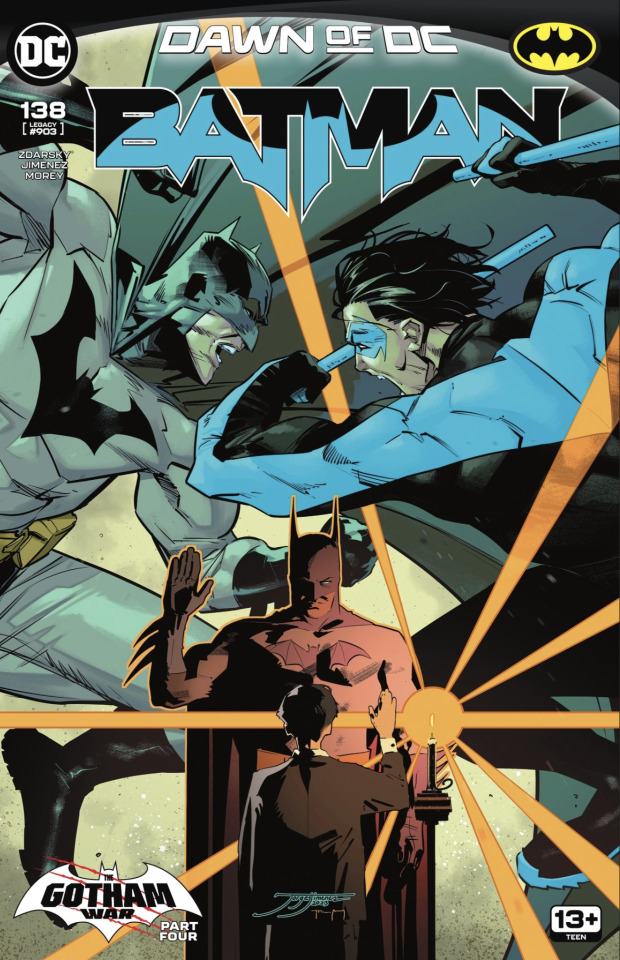
Batman #138
#Batman#Bruce Wayne#nightwing#dick grayson#oath#gotham war#jorge jimenez#dc comics#comics#2020s comics
62 notes
·
View notes
Text
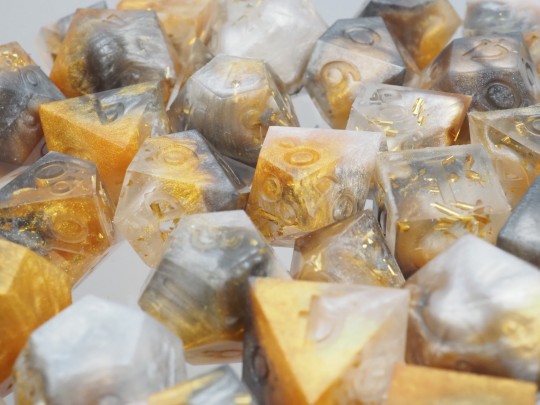
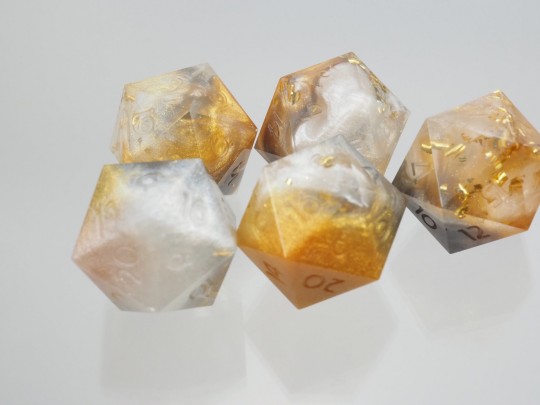

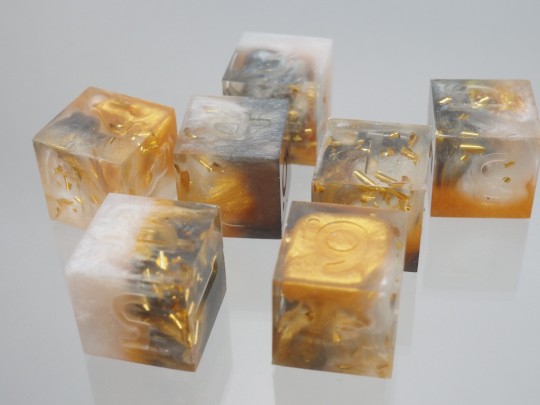

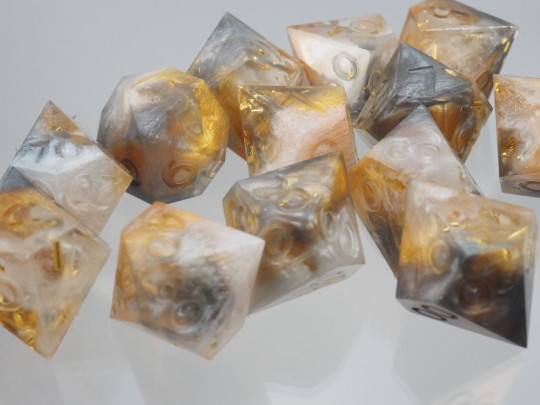

A Paladin of fame and glory has a little secret. They broke their oath... making a pact with a devil. The former radient figure of hope and heroism is now corrupted... Just the perfect timing since I made some new "Corrupted Glory" dice! What did your Paladin to break their oath? Or are they still a figure of utmost virtue?
These dice are still raw and need some sanding and inking.
(Advertisement)
#paladin#glory#fame#oath#corruption#dice#dnd#dnd5e#rpg#ttrpg#catinthedicebag#epoxy#handmade#resin#würfel#diceset#dungeonsanddragons#polyhedraldice
61 notes
·
View notes
Text
Thinking about my last reblog and how Baldur's Gate 3 character creation kinda fucked with my perception of paladins in the bg3 setting (it's specific version of the Forgotten Realms at least)
Since paladins don't get to select a deity at CC, I got the impression that paladins who's oath was not sworn before any particular god were more common than they really are.
There's technically a "Paladin of X" tag in game for dialogue, but the ONLY way to get it without mods is to also take a level of cleric and select a deity that way.
So when I made Alice as essentially a renegade paladin whose oath was sworn before no one except through her own conviction and fervor to self-actualize (she's Oath of Glory in canon) and that manifested divine power anyway, turns out that's really weird and uncommon in setting where most paladins swear an oath before a deity, and thus presumably are bound to tenets dictated by said deity (or the order of paladins they belong to, whether that reflects the true will of the god or not)
This is, in my defense, NOT how it works in tabletop 5e, where paladins select an oath but are not required to pick a deity (they still can pick one like many characters do, even those with no levels in divine casters). Giving a paladin a deity is more a nod to tradition, but RAW you're free to hold an oath without following a faith, just like you can be any alignment regardless of your oath (except maybe oathbreaker. BG3 even turns that on it's head by making it possible to be 'Good' as an oathbreaker, even restoring your oath, which isn't a thing in tabletop unless it's to repent for breaking it but without going full oathbreaker subclass)
Enter the most prominent paladin in Baldur's Gate 3, Minthara

Don't have any art saved to my phone so enjoy plushthara instead
She originally swore her oath of vengeance while in service to Lolth, to seek out and eliminate the enemies of the faith in Menzoberranzan (essentially part of the Lolthite Inquisition). This, by the way, is why she's so insightful when it comes to the other companions; it was literally her job to get good at reading people to find out what their deal was.
Her crusade against the enemies of Lolth led her and an army of House Baenre soldiers to Moonrise Towers, but instead of putting an end to the Absolute cult, she was captured, tortured for days, her soldiers killed or enthralled, and finally tadpoled and made to turn all that religious ferver and devotion towards serving the Absolute.
For this failure, Lolth abandoned her. As a Lolth-sworn drow (a problematic term basically made up for bg3 but works here) losing Lolth's favor is the most devastating thing possible, and there's almost no chance of going back. After being released from command of the Absolute by the Prism, she was, spiritually, alone for probably the first time in 250+ years of memory. Unless you come from a religious background only to lose faith later in life, you can't imagine what that's like (I don't ftr, but this is how I have come to understand it based on @spiderwarden's analysis)
And yet, despite this severing from a god that works Her way into every facet of Udadrow life, her oath endures. She remains a faithless (really faith-orphaned), but still undeniably spiritual paladin, bound to an oath that, for now, has her carrying out the same objective that sent her out of the Underdark before—destroy the cult of the Absolute, and seize that godlike power from those who control it.
When you rescue Minthara after romancing her in act 1, she says "You came. I prayed that you would, but there are no gods left for me." That raw-as-fuck line also spells out her current relationship to religion; IF a god would have her, she would be devoted. She even calls out to Lolth who, if the Spider Queen were to somehow take her back, she would in a heartbeat. With none answering her, she has no one but her savior, Tav/Durge, and their companions (whom she is now oath-bound to help whether she likes them or not)
And her natural inclination is to channel all that hurt, all that resentment and humiliation at being left with no divinity to know and to be known, into abject RAGE. Though she doesn't show it, I believe she is angrier and meaner NOW than she's ever been in life. That's why she talks about spitting on a shrine to Lolth, why she disapproves of offering tithe to any god at the Stormshore Tabernacle. Why she wants to BECOME a god, to become Absolute.
Hate is love betrayed. And I believe she had a LOT of love for Lolth.
Anyway this started as me musing on the spiritual nature of 5e paladin oaths in bg3, and kinda turned into character analysis for Minthara. Still, as the game's biggest example of a paladin who no longer serves any god but still commands divine powers to ⚔️SMITE Evil⚔️ by her oath, I think it came around in the end.
#bg3#baldurs gate 3#baldurs gate iii#baldur's gate 3#baldur's gate iii#paladin#oath#dnd 5e#bg3 minthara#minthara#minthara baenre#minthara bg3#minthara romance#nightwarden minthara#lolth sworn drow#lolth#character analysis#this doesn't even get into the implications of an Oathbreaker Minthara#which was out of scope for this post#and since you have to go out of your way to break her oath#and she arrives at camp with her oath of vengeance intact#I interpret that to mean she is canonically meant to be an oath of vengeance#queue
35 notes
·
View notes
Text


The Queen's Knight~ Where fairytale motifs unite space opera and historical fantasy within one illustration⚜️
#historical fantasy#historical romance#reylo#kylo ren#queen#knight#crossover#fanart#fairytale#illustration#orange#green#faith#oath#lightsaber#mint
96 notes
·
View notes
Photo
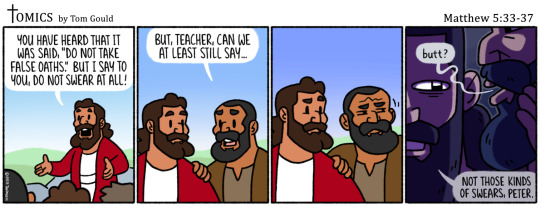
02/10/2023
No butts.
___
JOKE-OGRAPHY:
Jesus tells His disciples not to swear. He means that they should always be honest -- that their yes should mean yes and their no should mean no without the need for fancy oaths. Peter however, takes it to mean Jesus doesn't want them saying bad words ("swear" can mean either "take an oath" or "utter a profanity"). This might be true, but it's not what He was saying here. Also, "butt" isn't a swear anyway, except maybe in the absolute most prudish of households. Peter was just being way too cautious.
#jesus#peter#st peter#matthew#matthew 5#sermon#oath#swear#sorry clementine#bible#catholic#catholic memes#catholic humor#catholic art#christian#christian memes#christian humor#christian art#butt
203 notes
·
View notes
Note
Well, if you'd like to restate your positions, I'd like to hear your thoughts on the Oaths (particularly Vengeance, Devotion and Ancients, as they seem to be the most iconic) and to hear your position on them?
Oath of Devotion: The more traditional oath among the core three, and my favorite, if I'm being honest, for among other things, it provides the most clarity on how the oathkeeper is supposed to act.
Honesty: Don’t lie or cheat. Let your word be your promise.
Courage: Never fear to act, though caution is wise.
Compassion: Aid others, protect the weak, and punish those who threaten them. Show mercy to your foes, but temper it with wisdom.
Honor: Treat others with fairness, and let your honorable deeds be an example to them. Do as much good as possible while causing the least amount of harm.
Duty: Be responsible for your actions and their consequences, protect those entrusted to your care, and obey those who have just authority over you.
Every tenet begins with a virtue, a clear ideal to aspire to, followed by clarity on how best to fulfill that tenet. While this Oath would thrive in the Altruistic Collectivism that typically embodies the Lawful Good Alignment, it is by no means not capable of providing guidance and purpose to a person who lives outside such systems. It is my favorite oath because it's not overly ambiguous, has solid and clarified ideals and how to achieve them with the freedom to interpret them to their best fulfillment.
Oath of the Ancients: While the most popular according to polls I've taken in the past, and while I don't dislike it, it is my least favorite among the core three. It's an Oath that encourages goodness and benevolence to an admirable degree, but I sometimes feel it is too nebulous in its directives.
Kindle the Light. Through your acts of mercy, kindness, and forgiveness, kindle the light of hope in the world, beating back despair.
Shelter the Light. Where there is good, beauty, love, and laughter in the world, stand against the wickedness that would swallow it. Where life flourishes, stand against the forces that would render it barren.
Preserve Your Own Light. Delight in song and laughter, in beauty and art. If you allow the light to die in your own heart, you can't preserve it in the world.
Be the Light. Be a glorious beacon for all who live in despair. Let the light of your joy and courage shine forth in all your deeds.
It encourages a philosophy of altruistic consequentialism, a benevolence that focuses more on the final result than how best to achieve it. If it it stands against anything, unnecessary destruction and despair are illustrated as the closest it will acknowledge as Darkness in a tenet system that wants to encourage Light in all its forms. It is a moral oath that wants to find the goodness in everyone, foster it, strengthen it, but hesitates to name its enemy. Perhaps this is a statement that goodness can be fostered anywhere, and that is admirable.
Oath of Vengeance: The most martial of the core oaths, and one that embraces ruthlessness as a virtue. Out of all the Oaths, its perhaps the most focused in its belief and means of achieving it, to the point that the unwary can trap themselves.
Fight the Greater Evil. Faced with a choice of fighting my sworn foes or combating a lesser evil, I choose the greater evil.
No Mercy for the Wicked. Ordinary foes might win my mercy, but my sworn enemies do not.
By Any Means Necessary. My qualms can't get in the way of exterminating my foes.
Restitution. If my foes wreak ruin on the world, it is because I failed to stop them. I must help those harmed by their misdeeds.
In a way, its the opposite of the Ancients Oath in that it focuses more on the Enemies of the Oathkeeper than how to best live a virtuous or benevolent life. The only virtue it name sis restitution which it underlies as the final world: Where Evil Harms, you shall Restore. For many avengers, this can be overlooked or seen as less important than the Hunt, but allows the Avenger a means of reminding themselves that destruction of evil is meant to lead to good prospering. Destruction is not the end goal. Unlike the other 2, this is purely a warriors oath and can be ended by action, fulfilling the Oath, either allowing the person to move on or focus purely on the restitution tenet.
All three have a place and can be coterminous.
103 notes
·
View notes
Text

dako(仕事募集中)
532 notes
·
View notes
Text
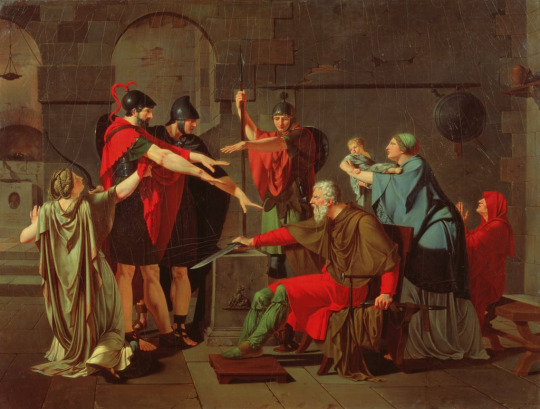
The Oath of the Horatii by Armand-Charles Caraffe
#oath#horatii#art#armand charles caraffe#roman#family#brothers#patrician#ancient rome#rome#war#roman republic#mythology#mythological#neoclassical#antiquity#romans#alba longa#history#europe#european#sword
99 notes
·
View notes
Text
Napoleon’s coronation oath — 1804
“I swear to maintain the integrity of the territory of the Republic, to respect and enforce respect for the Concordat and freedom of religion, equality of rights, political and civil liberty, the irrevocability of the sale of national lands; not to raise any tax except in virtue of the law; to maintain the institution of Legion of Honour and to govern in the sole interest, happiness and glory of the French people.”
Source: Steven Englund, Napoleon: A Political Life
#Steven Englund#Englund#napoleonic era#napoleon#coronation oath#oath#napoleon bonaparte#Napoleon: A Political Life#first french empire#french empire#France#history#19th century#1800s#napoleonic#coronation#sacre#coronation of Napoleon#notre dame#1804
51 notes
·
View notes
Text

www.witchcomic.com/a-trans-oath
#trans awareness#trans awareness week#trans pride#pride#trans#transgender#nonbinary#gay#oath#jhubbell#jthemthey#witch#comics#cartoon
47 notes
·
View notes